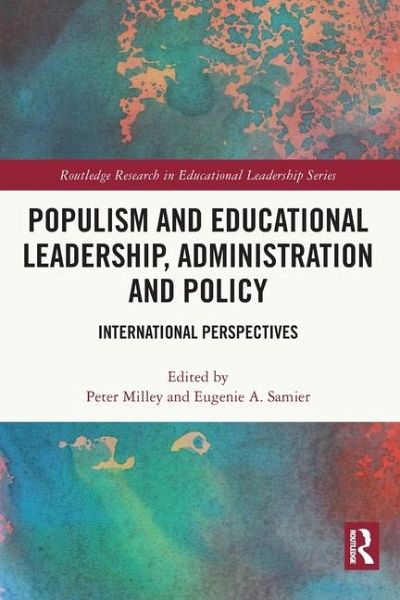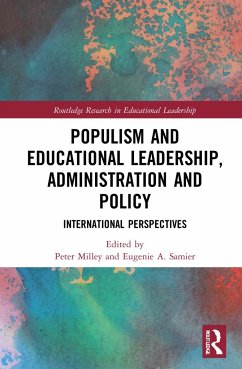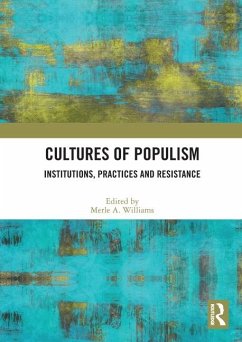
Populism and Educational Leadership, Administration and Policy
International Perspectives
Herausgeber: Milley, Peter; Samier, Eugenie A.
Versandkostenfrei!
Versandfertig in 1-2 Wochen
54,99 €
inkl. MwSt.
Weitere Ausgaben:

PAYBACK Punkte
27 °P sammeln!
This book explores theoretical and practical implications of a global resurgence of populism on educational leadership. Drawing together a wide range of international authors, it examines how sociocultural and political populist developments affect educational policies, organisations and administration around the world.














